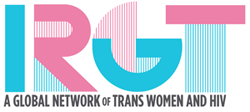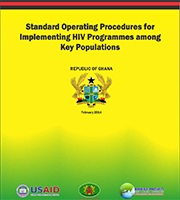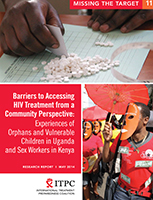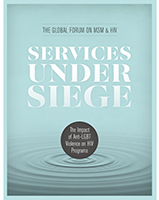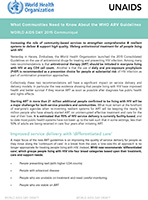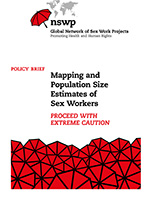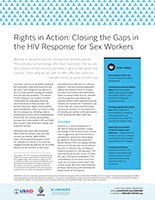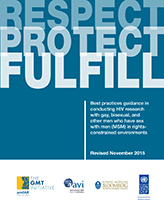
There is need for sustained HIV prevention, care, and treatment, especially among key populations (KP) who comprise as much as 40 percent or more of new HIV infections. As activities are scaled up and more stakeholders and actors are involved in the provision of KP interventions, there is the need to ensure that a standardised set of services is provided to all KPs in a non-stigmatising and confidential manner. These Standard Operating Procedures have been developed as one of the essential and fundamental activities outlined in the National MARP Strategic Plan 2011-2015. They are designed to systematise the strategies employed under the NSP 2011–2015 and its M&E Plan.
Year of publication:
2014
